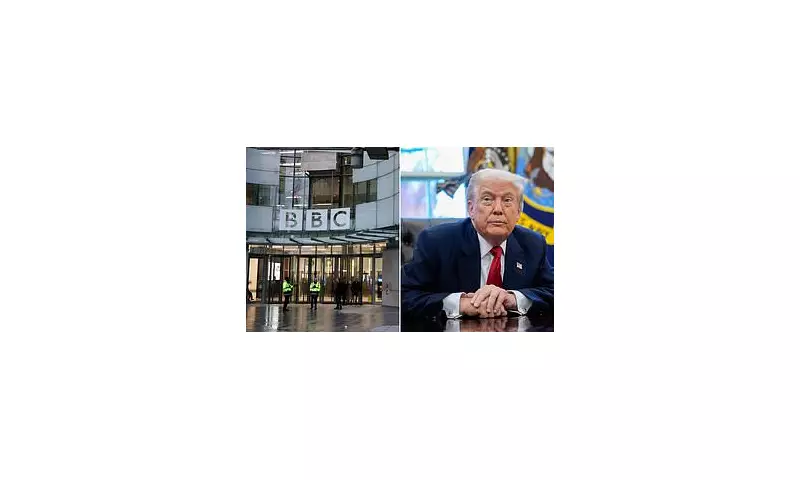
The BBC is confronting a severe international crisis and a multi-billion dollar lawsuit after admitting it edited a speech by former US President Donald Trump, an action that foreign officials warn will lead to a tougher global stance against the broadcaster.
The Panorama Scandal and Fallout
The controversy erupted when the BBC acknowledged editing a 2021 speech Mr. Trump made on the day his supporters stormed the US Capitol. The edit, broadcast on its flagship 'Panorama' programme, created the impression that the former president had advocated violence.
This admission has triggered a firestorm of criticism. US President Donald Trump is now threatening a $5 billion lawsuit against the British public service broadcaster. In response to the scandal, BBC Director General Tim Davie and news chief Deborah Turness have both resigned.
Despite the high-profile departures and an apology issued to Mr. Trump, the organisation continues to face a barrage of condemnation from international quarters. The White House labelled the BBC '100% fake news' and a 'propaganda machine'.
International Repercussions for the BBC
The scandal has provided ammunition for governments often critical of Western media. An Indian official, who spoke on condition of anonymity, stated they would cite the Panorama incident the next time the country had a dispute with the BBC.
'If they say that ethics and morals guide them to report impartially, we would say that they first need to wash away this episode from their history books before brandishing their standards to us,' the official told Reuters.
The repercussions extend to other major powers. A diplomat from a G20 nation typically hostile to the West indicated they would now adopt a much tougher line with the BBC, suggesting that if an ally like Trump could sue, then so could they. Meanwhile, Russia, which ranks 171st out of 180 for press freedom according to Reporters Without Borders, declared the BBC nothing more than a propaganda and disinformation tool.
Fighting Back and Upholding Standards
Within the BBC, there is a determination to resist what is seen as undue pressure. BBC Chair Samir Shah has stated the corporation will fight any lawsuit filed by Mr. Trump. This stance contrasts with US networks ABC News and the parent company of CBS, which settled lawsuits with the former president by donating to his presidential library after initially calling the accusations meritless.
Former BBC staff and analysts warn that the broadcaster's survival depends on not appearing to buckle. Roger Bolton, a former BBC editor and presenter, emphasised the global stakes: 'If the BBC is seen to give in, then other bullies will emulate Donald Trump,' he told Reuters, highlighting the difficult positions of BBC correspondents in places like Moscow and China.
Earlier this month, the BBC sent a personal apology to Mr. Trump but maintained there was no legal basis for a lawsuit. After the BBC refused to fully capitulate to his demands, President Trump gave a fiery interview to GB News, stating he had an 'obligation' to pursue legal action. 'I'm not looking to get into lawsuits, but I think I have an obligation to do it. This was so egregious,' he told presenter Bev Turner. 'If you don't do it, you don't stop it from happening again with other people.'
The scandal now threatens the core of the BBC's reputation as a standard-bearer for impartial journalism and has sucked it into a broader, highly charged battle over journalistic standards and press freedom.





